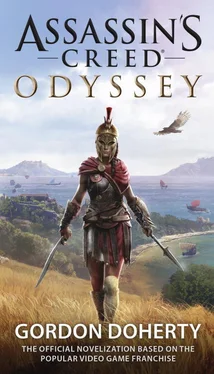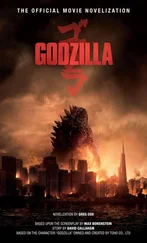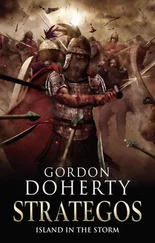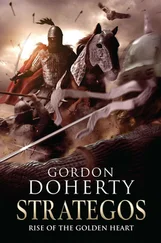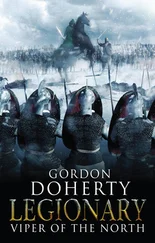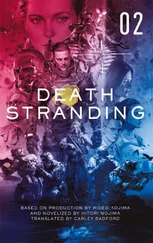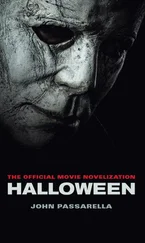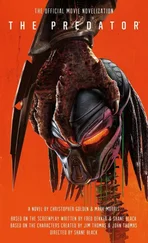He smiled, straightening up and setting his stick to one side. “Yes, I am too young to need this stick, but I like to play with people’s perceptions. Assumption is the basis of ignorance, like shackles on the mind. Break them and a wondrous road opens up: from illusion, through belief, beyond reason… to pure, golden knowledge . And is knowledge not the one true good in this world?”
Kassandra looked at him blankly for a time. “And you are?” she asked, extending the wine krater to refill his cup. He nodded toward the water krater.
“Ask anyone and they’ll tell you Sokrates, but a name gives you nothing. Our actions determine who we are, and every action has its pleasures and its price. With that said, then, who do you claim to be?”
Her eyes narrowed. “Kass—”
“Kassandra,” he finished for her. “Perikles explained you would be here tonight.”
Kassandra noticed Herodotos and Sokrates exchange a warm and earnest look across the room. Her doubts eased a fraction. “And where is Perikles?”
Sokrates chuckled. “He rarely attends his own parties.”
“I imagine he is upset by the ostracism of his friend,” she said. The results had been announced just before dusk. Poor Anaxagoras had been exiled for ten years.
Sokrates chuckled. “Quite to the contrary. He was singing like a lark about it earlier.”
Kassandra turned the wine krater toward her own cup, filling it and taking a deep glug. The wine was sour and punchy. “I don’t understand. Why would he wish his own friend into exile?”
“Things are rarely as they seem, Kassandra. Anaxagoras is my friend too. Indeed, he was my tutor—planting the first seeds of light up here.” He tapped his temple and supped on his wine. “But I too whispered a prayer of thanks to the Gods when the result was announced. I understand your confusion. But ask yourself: what use succor and shelter… in a nest of vipers?” He leaned a little closer to her. “Anaxagoras was in danger here. Grave danger. Most in this room, likewise.” He pointed to a tall fellow in yellow robes, streaked with white dust. He was stacking ornaments on a table like a tower, enthusiastically describing the proportions of his “construction” to a gathered circle of people. “Phidias there is the city’s chief sculptor and architect, the creator of the great bronze statue of Athena and the unfinished temple. Yet he too is not safe and hopes to be next to find safe passage from the city.”
“Fleeing… from whom?” she asked, guardedly.
Sokrates’s playful look faded. “Take your pick. This city is a pit of snakes, Kassandra.”
When her face fell and her eyes grew watchful, he noticed this, placing a hand on her shoulder and squeezing. “But there are many good sorts too, especially here. Look around you; among the inebriates you might see some of Athens’s finest minds: Thucydides, a fine soldier and an even better leader of soldiers… although he envies Herodotos and one day wants to write histories like him.” He pointed at a young, balding and stern-faced man surrounded by military-looking types, going by their scar-laced bodies. Then he pointed to a trio locked in heated debate. “Euripides and Sophocles over there—the pair of loving old goats that they are—masters of poetic tragedy. And Aristophanes, who loves to insert a dose of comic wit into their works, and would love to insert something else into Euripides, I’d wager.”
A chap with a pinched face and dark sprouts of hair either side of a bald pate waddled past Sokrates, swiping a dismissive hand. “Pour him some wine then move on,” the stranger advised Kassandra. “Lest the infuriating air-bladder start waffling with his usual perplexions, telling us night is day and day night—and that we are blind because we cannot see it is so!”
“Ah, Thrasymachos, my old sparring partner in matters of the mind,” Sokrates replied in an entirely contrasting tone.
Thrasymachos halted and stared at Sokrates. He balled his fists and his lips moved as if to say rise above it . He glanced at Kassandra. “If you seek wisdom, then speak with someone else.”
“Quite,” Sokrates agreed. “There are many golden minds in this room. Sophocles is wise, Euripides is wiser…”
“But of all men, Sokrates is wisest!” chirped a roaring drunk man from nearby.
Thrasymachos’s face was a picture, shooting red-hot daggers at the oblivious drunk.
“Come now, Thrasymachos. Perhaps you are now the wisest? Have you finally seen the light on the matter of justice?”
Thrasymachos took a step past Sokrates as if to storm away… but he halted, shook slightly then swung back to face him, hooked like a trout. “This, again ?”
Kassandra disguised a chuckle by taking another gulp of wine.
“We were discussing the nature of rulers, and the administration of justice,” Sokrates explained to Kassandra. “There is no better place to do so than in Perikles’s home, wouldn’t you agree? I simply asked my friend here, and I’ll ask him again: would you agree that the act of ruling is an art?”
Thrasymachos snorted in derision. “Yes, it is an art, as all the undertakings of man are. That is not up for argument.”
“Very well.” He let a moment pass—enough for Thrasymachos’s guard to drop, then: “Yet, medicine is for the betterment of the patient and not the physician. Carpentry improves the building, not the builder. So is the art of ruling not for the betterment of the ruled rather than the ruler?”
Thrasymachos stared at Sokrates agog. “What? No! Have you been listening to nothing that I say?”
Sokrates countered the man’s brimming ire with a placid half smile.
Kassandra threw back another mouthful of wine. “Justice is only good if it serves freedom,” she ventured, confident… or perhaps slightly drunk.
“Yet, is justice not a set of rules by which we must all abide?” Sokrates posed the question to both of them. “Is it not, by definition, opposed to freedom?”
Thrasymachos answered first: “No, because without rules there would be anarchy, and only the powerful would be free.”
“And are we to see that as different from the world in which we live?”
“Of course not!” Thrasymachos seethed.
“Wait… what are you trying to say?” Kassandra said, her mind in knots, now understanding the frustrations of Thrasymachos.
“I never try to say anything—” Sokrates began.
“No, he never does,” Thrasymachos agreed testily.
“—I am only exploring your ideas,” Sokrates finished.
Thrasymachos wrung his fingers through his twin tufts of hair, issued a half expletive then swung on his heel and stormed off for good this time.
Sokrates giggled like a boy. “I am sorry about that. I cannot help but tease him. He seeks answers instead of questions.”
“So do I,” Kassandra said firmly. “I’m looking for a woman who fled Sparta.”
Sokrates glanced at a polished-bronze mirror on the wall nearby, drawing Kassandra’s eyes to it also. She stared at her own reflection. “There she is.” He grinned.
“Very perceptive. But I’m looking for another woman. One who fled some twenty years past.”
“Have you any idea how many strangers have come through Athens this last moon, let alone in the past twenty years?”
She sighed. “No, and I don’t know if she even came here.”
Sokrates shook his head, pinching his bottom lip in thought. “If she went north, overland, then her route would have necessitated a passage through the Argolid.”
Kassandra’s heart sank. She didn’t even know if her mother had gone on foot. “The Argolid is vast.”
“It is,” Sokrates agreed. “But it is also mountainous and riddled with bandits. Travelers rarely veer from the one well-worn route—a route that passes Epidavros and the Sanctuary of Asklepios. The priests there are famed for the shelter they offer wanderers and those in need.”
Читать дальше
